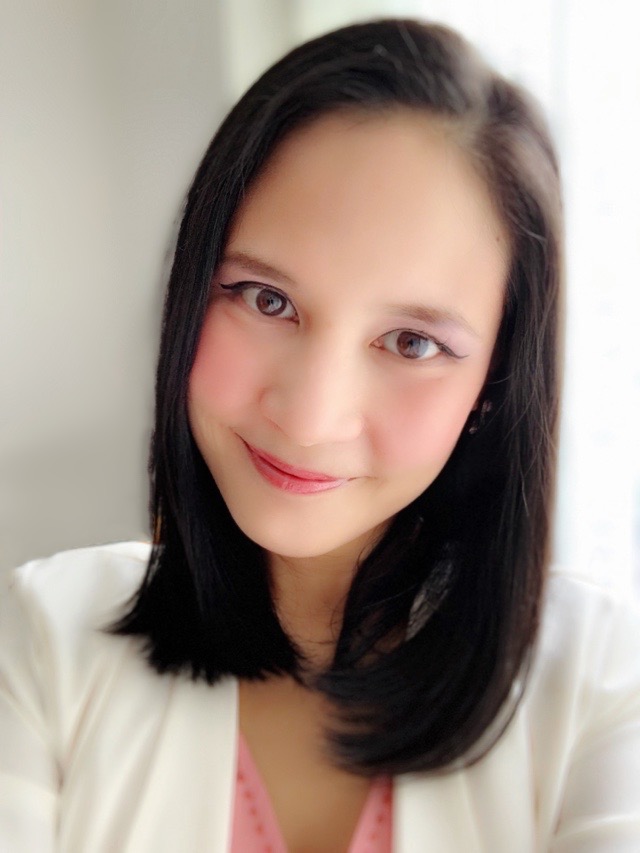Dr Chnanis Kongsuwan Ladha is a therapist in South West London
What attracted you to become a therapist?
I experienced a high level of stress and emotional difficulties myself in the past. That was when I realised how important our mental wellbeing is to us. I started by taking good care of myself to obtain my own optimal mental wellbeing and my experience motivated me to help others who are experiencing psychological and emotional difficulties. I love helping people and seeing them obtain a new perspective to create their lives to be the way that they desire.
Where did you train?
I had my first training in Thailand to be a certified hypnotherapist. Then, I continued my training for clinical hypnotherapy, NLP, CBT, mindfulness, as well as life coaching and counselling diplomas here in the UK. I further pursued knowledge and experience in the field by obtaining a Doctorate in Health from the University of Bath, where I designed and studied into interventions for mental wellbeing.
Can you tell us about the type of therapy you practise?
I apply a few types of therapy in my practice. All focus on positive mental health. My approaches include: hypnotherapy, positive psychology, mindfulness, life coaching and counselling. By having various approaches, I often combine the approaches to help my clients in the best possible way. The combination of therapy aims to help my clients to recover quickly and remain mentally healthy in the long-term.
How does the combination of hypnotherapy and mindfulness help with symptoms of anxiety and depression?
Most of the time, when we are anxious, we are worrying and predicting the future. When we are depressed, we are stuck with what happened in the past or our own negative thoughts. Our thoughts hurt our feelings and as we feel worse we create even more negative thoughts, which then eventually lead to anxiety or depression.
The combination of hypnotherapy and mindfulness is very effective in helping my clients overcome these vicious cycles. I often use hypnotherapy to help the client get rid of unhelpful behaviour such as negative focus and agonising thoughts. Then guide the clients to implement mindfulness in their daily lives in order to help them focus on the present and appreciate positive moments.
What sort of people do you usually see?
I work with various groups of individuals: teenagers, young adults to older adults from the age of 16 to over 90 years old with a wide range of difficulties such as: high stress levels, anxiety, depression as well as individual's life struggles.
What do you like about being a therapist?
What I like the best is being able to help people, support them to overcome their difficulties, seeing them feel better and get better, be healthy and happy in their lives.
What is less pleasant?
The less pleasant aspect is when I learn about people's painful experiences, traumas and struggles. I do have high sympathy for all of my clients and that sometimes can slightly affect my own mental health.
How long you've been with welldoing.org and what you think of us?
I have just been with welldoing.org for a couple of months. So far, I'm impressed with the information and resources welldoing.org provide in the website for individuals such as explanations of symptoms, types of therapy and helpful articles.
Do you ever suggest books or apps to clients?
I normally give some reading materials that are beneficial to particular clients. Most of the time, I give my own recordings for home practice. Sometimes I recommend mindfulness or meditation apps to help clients practise at home if suitable.
What you do for your own mental health?
I have few regular things that I do for my own mental health.
I like exercising. I practise yoga and go to the gym regularly. Play piano. Practise mindfulness and being mindful in each moment. Most importantly, stay connected with the people I love and spend time with them.
You are a therapist in Teddington, South West London. What can you share with us about seeing clients in this issue?
We all tend to be busy with life to the point where we neglect how we have been feeling.
What's your consultation room like?
My consultation room is in a wellbeing clinic. The atmosphere is safe, clean and welcoming. There are two comfortable chairs and a bench to lie down if clients prefer.
What do you wish people knew about therapy?
I wish people to know that psychological therapy is as important as physical therapy. I would like people to take good care of their mental health, talk about it, and go to therapy when you need it. Think about when we are having a cold or when we are having slight pain in our bodies, we go to see a GP. But, when our minds are in pain, many times we tend to neglect it until it becomes far worse. If we take care of our mind promptly as we do our body, we will be fully healthy and happy.
What did you learn about yourself in therapy?
This is an interesting question, I have learnt a lot through the years. I feel that when you have an understanding of others, you also understand yourself even more. The main thing is I have learnt how and why I feel the way I feel, and how to take care of my own negative feelings.

